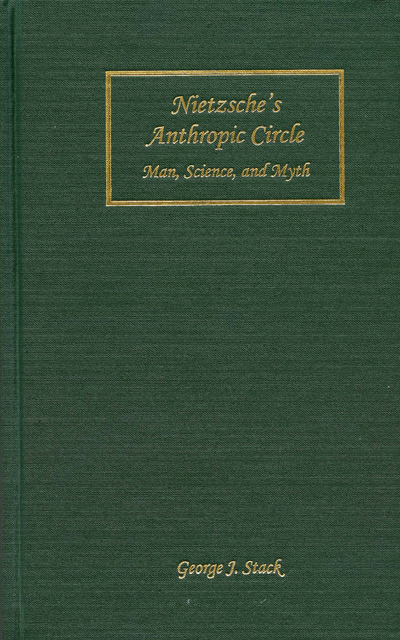Book contents
- Frontmatter
- Dedication
- Contents
- Preface
- Editions and Abbreviations
- 1 Anthropomorphic Projection
- 2 Agnosticism
- 3 A Dynamic Theory of Nature
- 4 Perspectivalism: Knowledge/Interpretation
- 5 Fictionalism in Science
- 6 The Structuralist Perspective
- 7 Evolutionary Epistemology
- 8 Tragic Knowledge and a Will-to-Power Psychology
- 9 The Cosmic Will to Power as Fable
- Notes
- Selected Bibliography
- Index
9 - The Cosmic Will to Power as Fable
Published online by Cambridge University Press: 23 March 2023
- Frontmatter
- Dedication
- Contents
- Preface
- Editions and Abbreviations
- 1 Anthropomorphic Projection
- 2 Agnosticism
- 3 A Dynamic Theory of Nature
- 4 Perspectivalism: Knowledge/Interpretation
- 5 Fictionalism in Science
- 6 The Structuralist Perspective
- 7 Evolutionary Epistemology
- 8 Tragic Knowledge and a Will-to-Power Psychology
- 9 The Cosmic Will to Power as Fable
- Notes
- Selected Bibliography
- Index
Summary
… the beauty and grandeur of a world-construction (alias philosophy) is what is now decisive for its value—it is judged as art.
Nietzsche, NachlassAN EXOTERIC MYTH
Although Nietzsche was vaguely familiar with the distinction between esoteric teachings for the elect and the exoteric representations of popular beliefs or external doctrines taught to the majority in medieval Islamic philosophy,1 he was quite familiar with its earlier adoption in Hindu thought. His friend Paul Deussen's Das System des Vedanta (1883) had been read and praised in a letter to Franz Overbeck (March 6, 1883) as an “excellent” study. In a letter to his mother (August 19, 1887) he alludes to a work edited by Deussen, Die Sutra's des Vedanta, and accurately described him as the leading authority in Indian philosophy in Germany.
The references to the esoteric-exoteric disjunction in Nietzsche's published and unpublished writings are sparse, as one would expect in the works of a thinker who intends to adopt this distinction. In The System of the Vedanta Nietzsche found extensive material on the use of an “exoteric metaphysics.” Deussen devotes chapters to variations on this theme: “Exoteric and Esoteric Vedanta Doctrine,” “The Exoteric Picture of Creation,” and “Esoteric Theology.” Deussen's still-valued study of Vedanta philosophy had a strong effect on Nietzsche's thought. The notion of being “beyond good and evil” is indebted to the same conception discussed by Deussen. That is, one who truly knows Brahman achieves liberation and puts both good and evil deeds behind and beneath him or her. There is little doubt that the ancient principle and practice of writing within the framework of the esoteric-exoteric difference was primarily absorbed by Nietzsche via Deussen's detailed examination of Vedantic thought. And I am convinced that he applied this technique to his own corpus and particularly to what Heidegger and others mistakenly consider as his “metaphysics” of the will to power.
The extension, by means of analogical reasoning, of the will to power to all entities entailed the supposition, which Nietzsche embraced, that man is a microcosm. The unending striving for “more” that he believed was characteristic of mankind is attributed, by way of anthropomorphic projection and transference, to nonhuman organisms and inorganic entities. This “hypothesis” is a skillfully created amalgam of science and art.
- Type
- Chapter
- Information
- Nietzsche's Anthropic CircleMan, Science, and Myth, pp. 185 - 208Publisher: Boydell & BrewerPrint publication year: 2005



